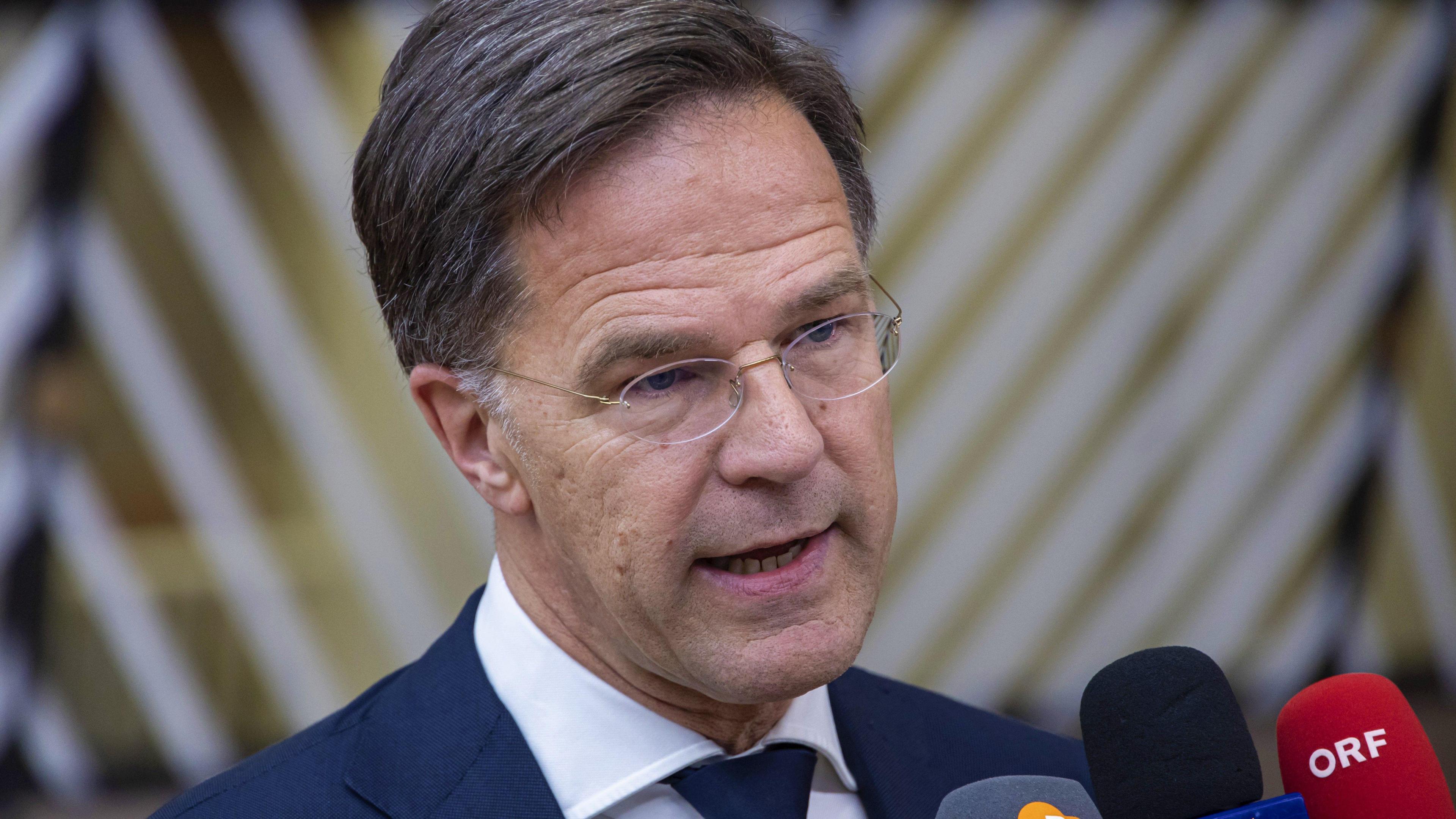Mark Rutte set to be Nato chief as rival drops out

Mr Rutte will inherit overseeing Nato's response to the Russian invasion of Ukraine
- Published
Dutch Prime Minister Mark Rutte is set to become the next secretary general of Nato after his only rival dropped out of the race.
Romanian President Klaus Iohannis informed the military alliance he was withdrawing his bid at the end of last week, his office said on Thursday.
The two had been vying to replace the incumbent Jens Stoltenberg, whose term expires in October.
While Mr Rutte is the only remaining candidate in the race, he is yet to be officially confirmed by member states.
Mr Rutte, 57, will inherit overseeing Nato's response to the Russian invasion of Ukraine, as well as the job of maintaining the US's commitment to the alliance if Donald Trump - who has previously expressed reticence about American involvement - is re-elected as president.
Mr Rutte has been credited with dealing positively with Mr Trump in the past.
He told a security conference in February that Europe should work "with whoever is on the dance floor", according to AFP.
Mr Rutte put his hat in the ring for Nato's top job after saying he would leave politics in wake of the collapse of his coalition government last summer.
His successor, Dick Schoof, was nominated by the new Dutch coalition partners at the end of May, paving the way for Mr Rutte to step down.
Mr Rutte's support of Ukraine and his 14 year-stint at the top of European politics earned him candidacy endorsement from many Nato members, including key players in the UK, US, France and Germany.
However, three member nations - Hungary, Romania and Turkey - initially held out.
After expressing reservations, Turkey said it would support Mr Rutte's bid after the Dutch PM travelled there in April to speak to President Recep Tayyip Erdogan, the Associated Press reported at the time.
On Tuesday, Hungary - whose government Mr Rutte has previously been critical of - withdrew its opposition after the Dutch leader agreed Budapest would not be obliged to commit military aid to Ukraine.
Hungarian Prime Minister Viktor Orban that as Mr Rutte had confirmed he "fully supports" the deal brokered with Mr Stoltenberg, Hungary was "ready to support PM Rutte's bid".
After Mr Iohannis withdrew his candidacy, he asked his Romania's defence council to throw its support behind Mr Rutte, which they did, his office said.
The next Nato summit is due to be held in Washington DC in July.
Related topics
- Published28 May
- Published17 June